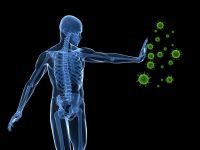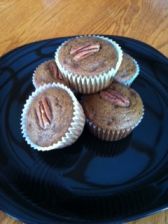Featured Program
Natural Immune Boosting Shot $45.00
 As cold and flu season quickly approaches, we start to think of ways to boost our immune system and fend off infections.
As cold and flu season quickly approaches, we start to think of ways to boost our immune system and fend off infections.
Problem with the Conventional Flu Shot
The conventional Flu Shot is a mixture of 3 strains of flu viruses mixed with a number of chemical preservatives and these strains are based on a prediction of what flu viruses some medical experts think will be the most problematic this season. This is really an impossible prediction to make when we have thousands of different strains of viruses that are continuously mutating.
The truth
The truth is that there are thousands of different strains of viruses that enter our environment daily. What it really comes down to is our own body’s ability to fight off infections. We will only get sick if our body is out of balance and our immune system is diminished. In order for viruses to survive and cause symptoms within the body they need an environment that will nourish them. Our best defense is our very own immune system, which needs to be strong in order to combat infections. The human’s immune system can be compromised by physical and psychological stress, poor nutrition, use of prescription drugs and environmental toxins.
Ways we can boost our immune system:
- Eat a diet that is high in whole, natural foods. Processed foods and inflammatory foods (such as wheat and cow’s dairy) can be a burden on the immune system.
- Drink 8-10 glasses of water a day. This will help to flush out toxins.
- Get a good night sleep of at least 7-8 hours. Give the body the energy that it needs to fight off any infections.
- Exercise regularly. Physical activity will stimulate the immune system.
- Take a probiotic. By balancing your digestive system, you will be supporting your immune system.
- Add Vitamin C (1000mg) and Zinc (30mg) to your health routine. These will support the immune system.
- Get a Natural Immune Boosting shot. It is safe and effective with no side effects or harmful additives.
Ask Dr. Roberts or Dr. Miller about getting your Natural Immune Boosting shot at your next visit.
Featured Article
How does COFFEE affect my health?
BY: DR. MELINA ROBERTS
We are a society with coffee shops on every corner. You can say you love the taste of coffee, but the truth is we are society that is addicted to coffee. So I think it’s important to talk about the physiological effects that the simple act of drinking coffee on a regular basis is having on your health.
 Coffee has a large amount of caffeine in it. Caffeine consumption stimulates the pituitary gland in the brain to secrete a hormone that triggers the release of adrenaline from the adrenal glands. Adrenaline is the stress hormone released when you perceive an external threat or danger. Your muscles tense, your blood sugar elevates for extra energy, your pulse and respiration rate speeds up, your state of alertness increases so that you are able to escape the predator. In prehistoric time, adrenaline helped our ancestors to escape from the saber-toothed tiger through our “fight-or-flight” response.= The problem is we aren’ being attacked by a saber-toothed tiger, we donT need to be fighting or escaping a predator, we are not in a dangerous situation where we need this “fight-or-flight” response. In most cases we are typically sitting at our desks working. The caffeine in the coffee overstimulates the adrenal glands, and overtime with persistent, chronic use, weakens them. Therefore in our modern world this leads to excessive wear and tear on the adrenal glands, which eventually leads to the burning out of the adrenal glands. So “what do these adrenal glands do anyways?” you may ask. The adrenal glands produce stress hormones including cortisol and epinephrine/adrenaline. These hormones play an important role for the metabolism, appetite, sleep patterns, hormone balance as well as our stress response.
Coffee has a large amount of caffeine in it. Caffeine consumption stimulates the pituitary gland in the brain to secrete a hormone that triggers the release of adrenaline from the adrenal glands. Adrenaline is the stress hormone released when you perceive an external threat or danger. Your muscles tense, your blood sugar elevates for extra energy, your pulse and respiration rate speeds up, your state of alertness increases so that you are able to escape the predator. In prehistoric time, adrenaline helped our ancestors to escape from the saber-toothed tiger through our “fight-or-flight” response.= The problem is we aren’ being attacked by a saber-toothed tiger, we donT need to be fighting or escaping a predator, we are not in a dangerous situation where we need this “fight-or-flight” response. In most cases we are typically sitting at our desks working. The caffeine in the coffee overstimulates the adrenal glands, and overtime with persistent, chronic use, weakens them. Therefore in our modern world this leads to excessive wear and tear on the adrenal glands, which eventually leads to the burning out of the adrenal glands. So “what do these adrenal glands do anyways?” you may ask. The adrenal glands produce stress hormones including cortisol and epinephrine/adrenaline. These hormones play an important role for the metabolism, appetite, sleep patterns, hormone balance as well as our stress response.
Coffee is habit forming and addictive. It is our society’s drug of choice. Caffeine affects the body much like a drug, in that your body develops a tolerance and a person will need more and more to feel the same effects. Eventually the body reaches a point where a person cannot do without it, otherwise they will experience withdrawal symptoms. Withdrawal symptoms include headaches, irritability, fatigue, moodiness and even depression. Studies by John Hopkins University School of Medicine showed that low to moderate caffeine intake can quickly produce withdrawal symptoms, therefore it does not take much to develop this addictive behavior.
Caffeine increases serum cortisol, which in turn decreases DHEA levels. This can greatly through off our hormone balance as DHEA is a hormone that is critical to the optimal functioning of the immune, cardiovascular, reproductive and nervous system.
The vitamins that the adrenal glands are dependent on to function optimally are B-vitamins and vitamin C. Coffee consumption causes the adrenals to burn through these vitamins and leads to a depletion of B-vitamins and vitamin C, and these vitamins are necessary for proper brain and nervous system functioning and for converting food to usable energy.
Most people simply do not have enough natural energy from getting enough sleep, enough nutrients from a proper diet, drinking enough clean water and exercise, instead we have become a society depend on coffee to push us through the day. The problem is this leads to the physical body becoming exhausted by artificial stimulation.
To break this coffee/caffeine addiction, it is best to cut down gradually while supporting the adrenals and eating a healthy diet.
It is important to note that there are other sources of caffeine other than coffee including pop, energy drinks, tea and chocolate. Therefore you donT want to be replacing one caffeine source with another (ie. Drinking cola pop instead of coffee).
Featured Recipe
Pumpkin Muffins


